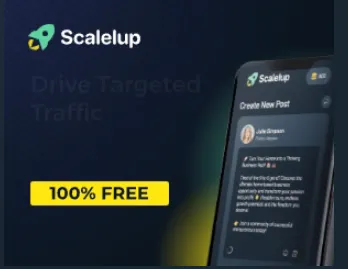
How To Make Your First Affiliate Commissions In Just 48 Hours...Even If You Have Little Or No Experience Online
Discover How I Started An Online Business That Makes $7, $47, and Even $2000 Commissions By Following A Simple 3 Step Plan

Only 3-Steps To Start YOUR Affiliate Marketing Business:
Step 1

Click the button below to register your free OLSP account and get started right away
Step 2

Sign Up To Get YOUR Mega Link So You Can Earn Lifetime Commissions From 7 Different Income Streams
Step 3

Join the community, watch the training and share your Mega Link to start earning today
This Headline Makes You Want To Learn More About Me
Lorem ipsum dolor sit amet, consectetur adipisicing elit. Autem dolore, alias, numquam enim ab voluptate id quam harum ducimus cupiditate similique quisquam et deserunt, recusandae.


THIS HEADLINE TALK ABOUT WHAT YOU'lL ACHIEVE WITH THIS OFFER
Lorem ipsum dolor sit amet, consectetur adipisicing elit. Autem dolore, alias, numquam enim ab voluptate id quam harum ducimus cupiditate similique quisquam et deserunt, recusandae.
Why Join OLSP?
Everyone wants to start affiliate marketing, but few have the skills to succeed.
We have proven systems + community.

It's more than another course or training.
This is a system with the things affiliates need to succeed. Things like...
Lifetime commissions
How to get traffic to your affiliate links
Caring & helpful community
What Do You Get With The OLSP System?

A unique affiliate link to promote the OLSP System and get lifetime commissions

Get your own blueprint to success with affiliate marketing

Done-for-you system follows up with your leads and makes sales FOR YOU

Step-by-step training that teaches you how to start earning within 24 hours.

Active Facebook community of over 140,000 members

Weekly live training sessions with Wayne

How to get 100s of people clicking on your link. Clicks = commissions

Membership dashboard for accessing your training and checking your commissions

Earn lifetime commissions on all your leads’ purchases - including high ticket products

The free traffic methods that are working best plus exactly how to use them yourself
What is Affiliate Marketing?
And Why Should You Care?
Affiliate marketing is a $17+ Billion per year industry (and growing)
The product creator provides all the support and fulfillment of services (so you don't have to)
Earn 4% - 100+ percent commissions for referring customers
Affiliates can work from anywhere as long as they have Wifi and a phone / laptop
Flexible schedule allows affiliates to work days, nights or anything in between
No limits on earnings. With affiliate marketing, the sky is the limit on income

This Headline Makes You Want To Learn More About Me
Lorem ipsum dolor sit amet, consectetur adipisicing elit. Autem dolore, alias, numquam enim ab voluptate id quam harum ducimus cupiditate similique quisquam et deserunt, recusandae.


THIS HEADLINE TALK ABOUT WHAT YOU'lL ACHIEVE WITH THIS OFFER
Lorem ipsum dolor sit amet, consectetur adipisicing elit. Autem dolore, alias, numquam enim ab voluptate id quam harum ducimus cupiditate similique quisquam et deserunt, recusandae.
Just How Successful Are These Other Students?








Who IS
WAYNE CROWE?
Wayne Crowe is the creator of the OLSP System...he is a world-renowned affiliate marketing expert who's helped over 140,000 students get started.
Before generating over $10M online, Wayne spent 7 years as a factory worker living paycheck to paycheck.
Now he focuses his time on his 'Helpenomics' method which focuses on teaching students how to make money online in a way that helps others while freeing up more time to spend with family and enjoying life.

